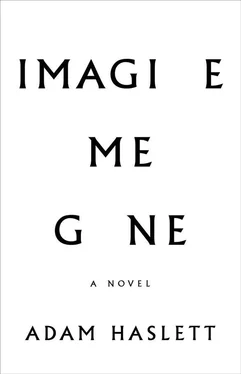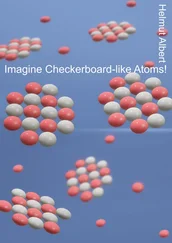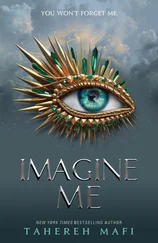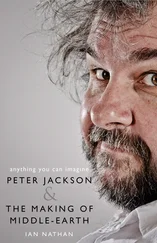“Why won’t you call an ambulance?” he says.
I set the mug down in front of him. And then I sit in the chair beside him and I lean over and try again to hold him, listening to him tell me why the drink will do no good. And I tell him to sip it anyway. He says that he is going to die. I tell him that he isn’t. Eventually, he picks up the mug.
He needs rest. A great deal of rest. And so do I.
On the way back up the hill, Paul walked ahead with Laura and the dog, and Kyle and I followed behind. The day was bright and clear. Through the gaps in the cypresses you could see across the mouth of the bay to the Golden Gate, and over the water to the slopes of the Marin Headlands. Little white sailboats crisscrossed the channel, and closer to the shore kayakers paddled, the waterway busy on a warm and pleasant Sunday.
Laura and Kyle had arrived Friday afternoon from LA. Her parents were taking care of their nine-month-old, giving them their first weekend off since her birth. They were appreciative guests, happy simply to be eating in restaurants or seeing a movie. The visit was good for Paul, too. They were his oldest friends, and a couple I knew well myself by now with all our visits back and forth, first to Boulder and then Southern California. It helped that neither of them had anything to do with the world of independent film, which meant Paul could share the vagaries of his periodic employment without the professional need to be relentlessly upbeat and bubbling with exciting projects. Once I had established my practice, he’d gone back to scriptwriting and line producing with enough success to keep at it, though still in a business that offered no security. In the presence of his college friends, the weight of all that lightened.
“I always forget how gorgeous it is here,” Kyle said, pausing at one of the overlooks that opened onto the headlands and the ocean beyond. In the decade I’d known him his appearance had changed little. He still wore ratty jeans, a faded T-shirt, and a baseball cap over a thicket of dirty-blond hair, as if he’d rolled out of a dorm room bed, slightly hazy but in good spirits. “I guess we live on the coast, too, but you wouldn’t know it.”
I didn’t much notice the landscape anymore. Or when I did, it was mostly to wonder how much longer we would be able to afford San Francisco. The tenuousness of remaining seemed the more present fact. But we were at least enjoying the outdoors more. It had been one of the reasons to get the dog, to spur us to take the hikes that we’d enjoyed when we first got here. We’d driven out of the city more in the last eight months, pressed by Wendell’s pleading, than we had in years. It did all three of us good. I got a different kind of release than I did from sprinting, and Paul came home more relaxed than he ever did from the gym. And more likely, I noticed, to have sex. Which was good for more than just our love life. It calmed the worry, which I’d never quite rid myself of, that there was something lacking between us. A missing ease born of an insufficient trust. It didn’t press on me the way it used to. But it was there still — the thought that we might not always be together. And that if it was going to end, I would be the one to end it. I knew it wasn’t that simple, and that this idea served its own function, to regulate an older, more basic fear of mine that one day Paul, like my father, would simply vanish. Sex banished those abstractions. At least for a time.
“How are the two of you?” I asked Kyle. “Since the baby.”
“We’re good,” he said. “I thought I’d hate having Laura’s parents so close, but it’s actually kind of great. Their whole freak-out mentality — the world as this ginormous danger, and how Laura would miscarry if she went jogging — they just dropped that stuff once the kid was born, which makes them a lot saner. And it’s great for us. We’re here, right?”
Saner. That was exactly how I thought of Kyle. He and Laura had married a few years after graduating with Paul. They’d moved to Colorado because they both loved to ski and hike. She’d helped to run a bakery for a few years, and he’d gone back to school for video-game design, which was what had eventually taken them to LA. Now he worked at a company where he smoked less pot than most of his colleagues and made enough of a salary that she could stay home, which she wanted to, at least for a while. I knew from Paul that they had their ups and downs, like anyone else, but their way of being in the world together was so full of ease, and so seemingly optimistic, I couldn’t imagine them apart. At dinner the night before, when Laura had asked me how my practice was going, Kyle listened to my response as if I were a zoologist describing the behavior of primates. Therapy had never even occurred to him. It existed in a parallel universe. Which might have been one of the reasons I laughed more with him than almost anyone else I knew. The things that preoccupied me didn’t enter his head, and that was permission enough to let go of them.
“What about you?” he said. “You still thinking about the kid thing?”
It seemed strange, in retrospect, that we had never told him or Laura about my abortion, given all our weekends together over the years, and how much else about our lives we tended to share with them. Paul and I had come back from that Bethany Christmas in Walcott still arguing about it, not because we disagreed about what should be done, but because I needed an acknowledgment from him, before I did it, of the depth of the inequity in what one contraceptive failure had cost my body as compared to his. A few weeks after I’d had the procedure, though, a kind of mutual forgetting settled over it, helped along by the fact that I told so few people, other than Alec and one or two friends. When the subject of children came up now, usually because of another couple having a baby, it was mostly an occasion to remind ourselves of how impractical it would be for us. And a reminder to me of how impossible it seemed that I should give that much more care than I already did to the people around me.
“I suppose we should try getting married first,” I said, to my own surprise.
“That’s not a requirement.”
“No, but maybe it would do us good, to clarify things.” Kyle turned back from the view over the water to face me with the kindly, open expression I always pictured him with, and which I found relieving, but also confusing, the way it offered no problem to hold on to. “I’m not complaining,” I said. “I don’t mean it to sound that way.”
“You can complain about Paul all you want. You’ve been with him long enough. He’s moody. I used to think he was going to stop hanging out with me because I was a ski bum and didn’t read enough. But he’s a loyal guy.”
“You’re right,” I said, as we started again up the path toward the parking lot. “He is.”
Next to the fountain that stood in front of the Legion of Honor, Paul was giving Wendell water from the little dish we kept in the trunk of our car. Laura stood beside them in her windbreaker, her hair tied in a ponytail, gazing contentedly over the city and the bay.
“Can’t we stay for a week?” she said, as Kyle and I approached.
Though she’d always evinced the same easygoingness as her husband, I’d sometimes wondered if being laid-back was more of an effort for her, a thing she’d found in Kyle and successfully emulated rather than having been born into it. Though at a certain point it didn’t matter. The emulation became the thing itself.
“Fine with us,” Paul said.
I leaned down to pick pieces of bark and grass from Wendell’s coat. He was a midsize black mutt, a collie mix, and rambunctious the way Kelsey had been, which had something to do with why I had favored him at the pound — that unaccustomed glee I’d felt as soon as we met him, a sense memory of Kelsey in the yard. He had that same eager spirit.
Читать дальше












